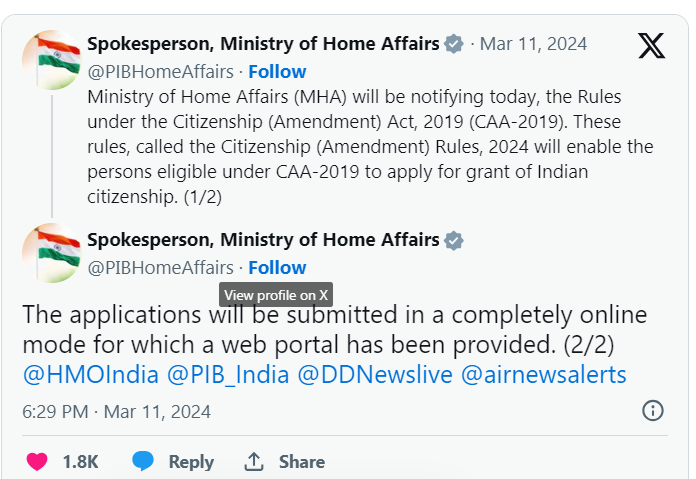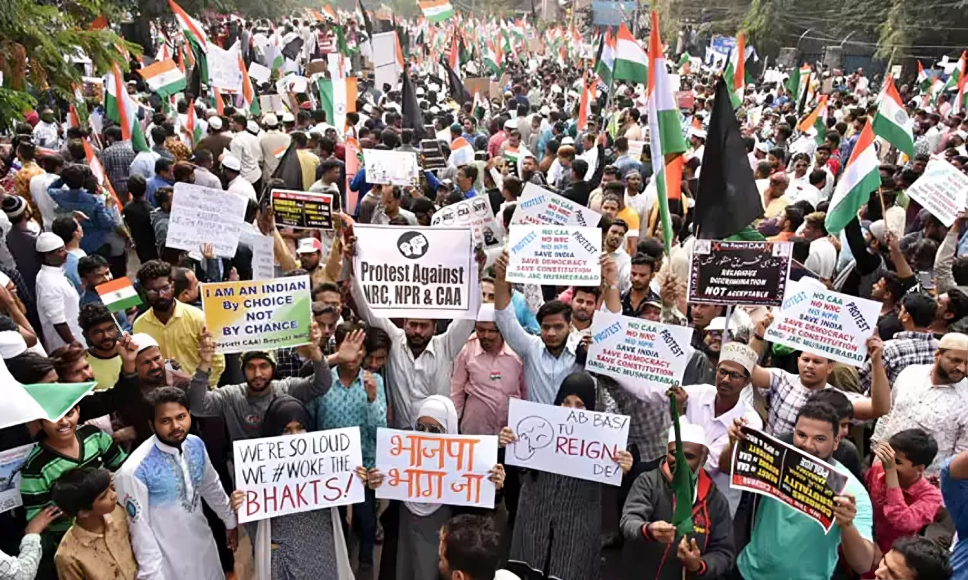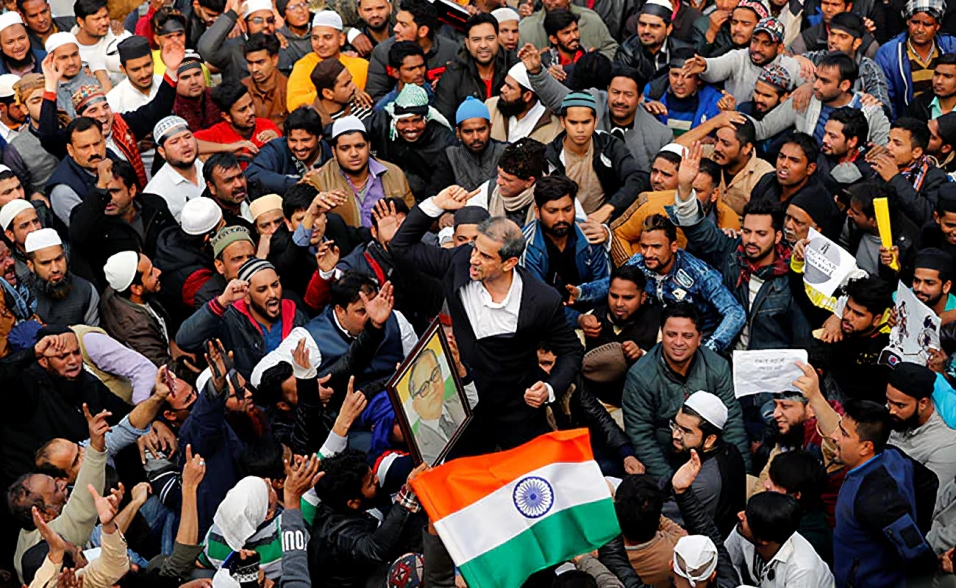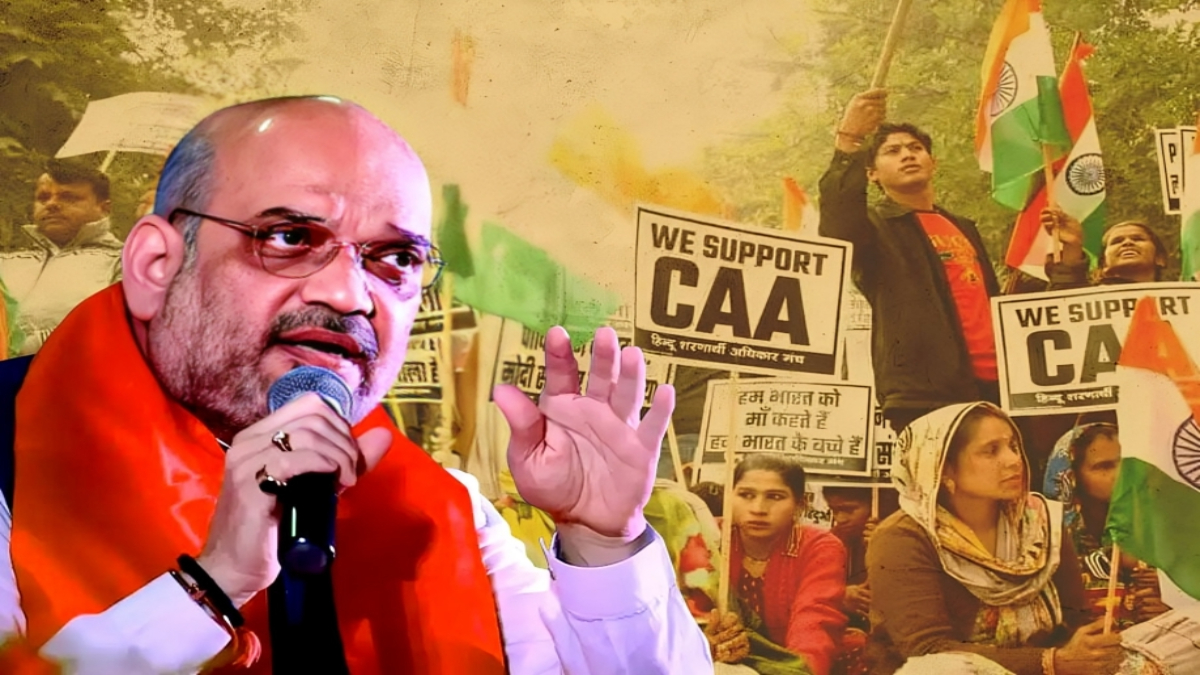The Citizenship Amendment Act, also known as CAA, has been officially implemented today with the issuance of a notification by the government on Monday evening. This significant development comes several weeks ahead of the 2024 Lok Sabha election.
Despite facing protests from activists and opposition politicians, the CAA was approved by Parliament in December 2019. With the notification in place, the central government now has the authority to grant citizenship to individuals belonging to Hindu, Sikh, Buddhist, Parsi, Jain, or Christian communities who migrated from Bangladesh, Pakistan, and Afghanistan to India on or before December 31, 2014, due to religious persecution.

A representative from the Home Ministry stated that individuals who meet the criteria can apply through a fully online process. No additional documents will be required from the applicants, as confirmed by an official. The implementation of the CAA was a significant campaign promise for the BJP prior to the 2019 election.
Bengal Chief Minister Mamata Banerjee, a vocal critic of the CAA, has been accused of intentionally misleading the people of her state on this issue. With 42 Lok Sabha seats, Bengal is becoming a crucial battleground for the BJP in its pursuit of reaching 370 seats. In response, Ms. Banerjee emphasized her government’s firm opposition to any form of discrimination against people, whether based on religion, caste, or language. She criticized the sudden implementation of the CAA just days before the election announcement, labeling it as a political move. Additionally, she highlighted the sensitivity of the CAA, NRC, and NPR issues in Bengal and the northeast, expressing her desire to avoid unrest before the election.
The CAA has been a contentious issue in the northeast, where certain parts have been exempted from its implementation. In addition to this, the BJP has been accused by Ms. Banerjee of using the CAA as a political strategy to gain votes in the upcoming elections. She firmly stated that she will not allow it to happen as long as she is alive. The Assam Students Union, which previously led protests against the CAA in the state, has now called for another agitation due to the violent clashes between anti-CAA protesters and the police. It is worth noting that Ms. Banerjee is not the only opposition politician fighting against the CAA.

Recently, Home Minister Amit Shah referred to the CAA as “a legislation of the nation” and assured that it will be officially announced. He further mentioned that the CAA will be enforced before the election…
The Home Minister, who spearheaded the government’s efforts on this matter in both houses of Parliament, also downplayed concerns regarding the CAA and the NRC (National Register of Citizens) being used to target Muslims.
The Tamil Nadu counterpart of the Bengal leader, MK Stalin, expressed a similar stance. He accused the BJP government of acting “against communal harmony” and vowed not to implement the law.
Various states, including Kerala and Punjab, as well as those previously governed by the Congress and now by the BJP, such as Rajasthan and Chhattisgarh, also opposed the CAA and passed resolutions. Both the Bengal and Kerala governments halted all NPR and NRC activities.

In Telangana, the then-ruling Bharat Rashtra Samithi led by ex-Chief Minister K Chandrashekar Rao also passed resolutions against all three laws and urged the government to eliminate any references to religion or foreign countries due to concerns raised by citizens nationwide.
The Madhya Pradesh government, which was also under Congress rule at the time, passed a resolution. Notably, several BJP leaders and lawmakers from the state also criticized the law.
The government claims that the Citizenship Amendment Act will assist minorities from Muslim-majority nations in obtaining citizenship if they fled due to religious persecution. However, critics argue that it discriminates against Muslims and violates the Constitution.

